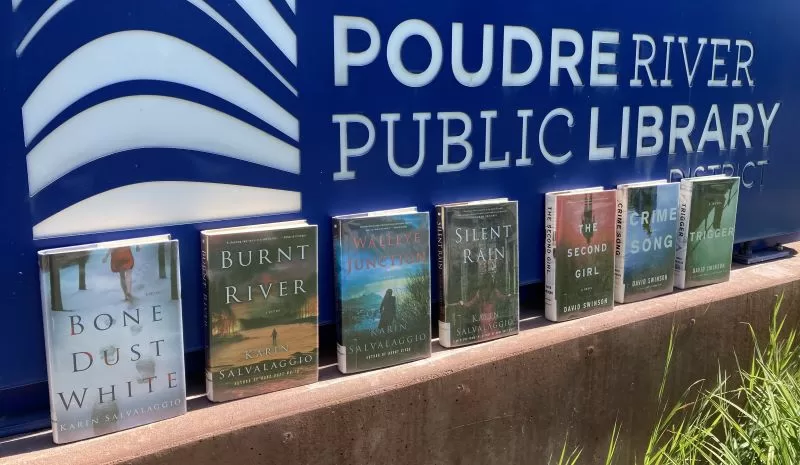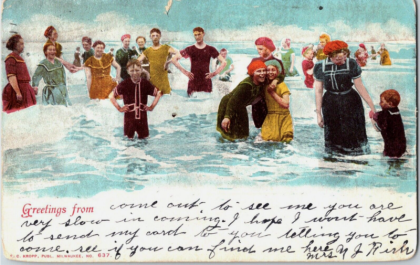
I was recently introduced to a couple of crime fiction series that offer interesting contrasts; one written by a female author whose female protagonist is a state police detective who solves crime in a largely rural setting. The other is a male writer whose male protagonist is a retired police detective who takes down the bad guys in a gritty urban environment.
Both characters have their personal flaws but of a very different nature. This is part of the fun, as each struggles with personal demons—including quite a few self-inflicted wounds—all the while going about doing what they do best.
The often unforgiving landscape of Northwest Montana’s Flathead Valley serves as the dramatic backdrop to the sleuthing of Montana State Police Detective Macy Greeley. This four-volume crime-fiction series is written by Karin Salvalaggio, who holds a graduate degree in creative writing. Greeley is dispatched from her home in the state capital of Helena to a trio of small fictional towns that flank the very real Flathead River, which flows out of the Canadian Rockies.
Each of the towns has its own police force but few investigative assets, so Greeley serves as a sort of circuit detective, bringing the resources of the state police to the Flathead Valley.
Greeley #1—Bone Dust White (2014)
A very pregnant Macy is ordered back to Collier, Montana to solve a murder that appears to be connected to an earlier episode of violence she investigated a decade before.*
Unlike the other towns along the river, Collier has a history of violence—as Greeley’s back story illuminates. Indeed, as she goes about uncovering the complicated truths behind the murder, we are introduced to an amazing array of characters with small town and familial ties that connect the cast in a complicated web of deceit, betrayal, infidelity, addiction, and a host of other social pathologies.
Salvalaggio’s portrayal of Collier holds up a mirror to America in the 2010s and the reflections are not pretty. During a conversation assessing the love interest of one character, he is told by a friend, “Given you’re employed, not addicted to meth, and have all your teeth, I imagine you’re Collier’s most eligible bachelor.”
Greeley #2—Burnt River (2015)
Our detective is dispatched to Wilmington Creek to investigate the execution-style murder of the son of a local rancher, a veteran who has just returned home from serving in Afghanistan (add PTSD to the list of social maladies that Salvalaggio so deftly navigates).
While the “sleepy ranching community” of Wilmington Creek is shocked by this rare occurrence of violence, the more prosperous town exemplifies the struggle of those with the means to isolate themselves from the rancor that seems to ripple through modern American life; not an easy task, even in rural Montana.
Wildfires and drought fill in the back story of Burnt River; and literally expose an old crime scene, which has quietly rested at the bottom of a rapidly shrinking lake.
Greeley #3 —Walleye Junction (2016)
Greeley becomes an eyewitness to the murder of a popular local talk-radio host who had used his platform to rail against the far-right sentiment that seems to have infiltrated much of the rural American West. Indeed, throughout the entire Macy Greeley series, the remote areas of the Flathead Valley percolate with right-wing militia activity and the rumblings of the sociopolitical discord that has only escalated in recent years.
Along the way to solving this one, the intrepid detective interacts with the cast of law enforcement characters we have come to know in the earlier books. Somewhere in the middle of Walleye Junction, I realized that these complicated interactions were beginning to reveal the deeper narrative that often resonates with quality series reading like this.
Greeley #4—Silent Rain (2017)—sits on the shelf. I can’t wait to get to it.
Writer David Swinson is a retired police detective from the Washington Metropolitan Police Department who has created another memorable crime-fighter who looks a lot like the author himself: Frankie Marr, a retired Washington, DC Narcotics Investigator turned rogue private investigator.
While Macy Greeley’s troubles revolve around her commitment to a seriously demanding job and establishing healthy romantic relationships, Frankie Marr prowls the gritty streets of the nation’s capital while juggling an enormous pharmacy of chemicals that keeps him just hyped enough to come out on top… mainly. It’s pretty safe to say that Marr is a functional alcoholic. When it comes to illicit drugs, however, “functional” is often an exaggeration.
As a PI, the anti-hero Marr hunts down drug dealers in order to steal their stash in support of his own habit. Loading up on Oxycontin, Vicodin, Klonopin, and marijuana, all topped off with regular doses of Jameson Whiskey and bumps of powdered cocaine, Marr somehow gets through his days.
And when it comes to dealing with a criminal element less sensitive than he is, Marr often serves as judge, jury, and sometimes executioner; especially when the condemned have become witness to Marr’s confiscation of “evidence.”
In an early scene, after Marr breaks all the rules, a perpetrator asks, “What the f[***] kinda cop are you man?” And the thoroughly self-aware Marr responds, “The broken kind.”
While this may not seem like the most loveable of characters, during the opening drug bust in Marr #1—The Second Girl (2016)—Frankie comes across a kidnapped girl, rescues her to great acclaim and then unenthusiastically agrees to find another lost girl who is caught up in the same mess. His veins may course through with a veritable pharmacy of twenty-first century style inebriants… but Frankie Marr still cares.
Written in the first person, the series follows Marr completely inside his own head, usually pondering how to keep his drug inventory solvent, but also revealing a big-hearted cop beaten down by the system and his own shortcomings. Most amazing is a powerful awareness of his self-destructive behavior that shines an interesting light upon what it means to be addicted.
Marr #2—Crime Song (2017)
Swinson begins in the voice of Frankie, “I tried self-restraint once. Not on purpose. Caught a bad virus. Put me down for a bit. When I got better I continued not using, but after a couple days I came back, preferring high spirits and liking myself again over a state of near comatose-ness and self-loathing.”
While rooting for a drug-addicted vigilante seems a little off-kilter, David Swinson pulls it off. The author’s time on the street has clearly informed his writing and one wonders to what degree Swinson witnessed or perhaps even participated in the unsavory habits exhibited by Frankie Marr.
I’ll let you know after I read Frankie Marr #3 – Trigger (2019) – sitting over there on the shelf with Macy Greeley.











